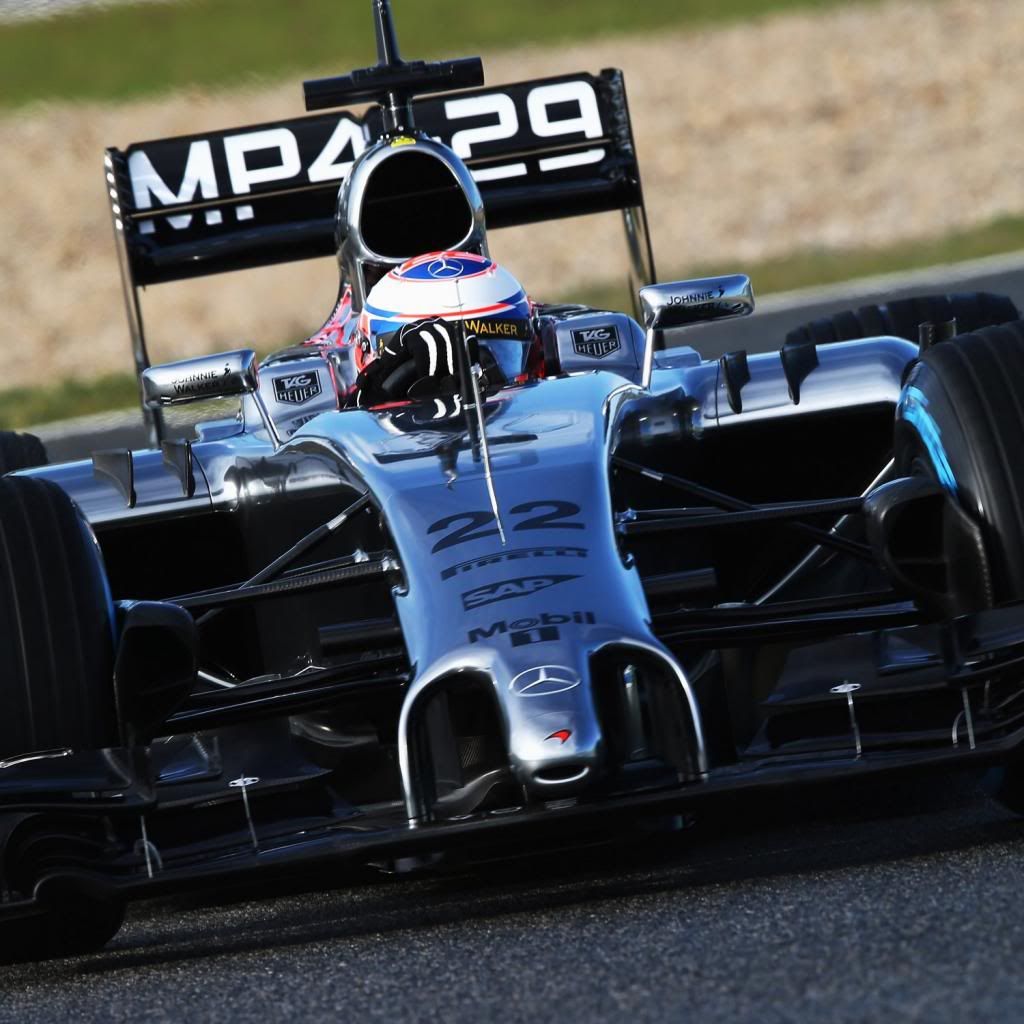- Login or Register
No account yet? Sign up
Formula cars are going to have a much quicker steering ratio, which makes corrective inputs very quick, whereas a normal production car would take much more turning of the steering wheel. My formula car is less than 270 degrees lock to lock.richard_leeds wrote:They avoid a tank slapper because the car is more responsive to corrections? Is it possible to recover a road car that had lost its rear end in a similar way?WilliamsF1 wrote:I am still wondering how a tankslapper is avoided by these guys.

And you don't have to be an F1 driver to do this either - a normal guy like me can do it.jtc127 wrote: Also, the drivers aren't reacting to the cars as a conscious thought. When the back end starts to go you feel it with your body and apply corrective steering input without even thinking about it. At speed you don't have enough time to think about what's going on and think of your response, it has to be completely instinctual.
ABS monitors wheel speed. It can be set to intervene at any point between 0% and 100%. If you know the tyres and road surface intimately (as in F1, for example) you could set it up to be as close to perfect as you can get. On each wheel. No human driver can do that. Likewise TCS.raymondu999 wrote:Doesn't ABS/TCS work in a "cure rather than prevent" method? I always thought that TCS cut power back as soon as it detected excessive wheelspin, and ABS cut braking back when the wheels started to lock. A human would be preventing that. No?
While we're talking of locking, I remember last year in Hockenheim Massa was frequently locking even all 4 tyres in his 2nd stint.
That's the answer to those who were quick to jump on me. Road cars, unless they are high end, have ABS systems with binary action. On input it's wheel spinning or locked, at the output it's apply pressure or not. The frequency depends on the actual friction level between tyre and road.GSpeedR wrote:Don't confuse motorsport derived ABS with what you find on production vehicles. Production vehicle ABS is intended to allow combined steering and braking and thus it (attempts to) controls slip ratio to well below longitudinal maximum. Motorsport ABS is analogous to traction control and can provide maximum braking performance with fidelity that can't be matched by humans. Plus it is often supplemented with compensations from additional chassis sensors. If F1 allowed it they would use it, just like TC.
Sure, but the key thing is that they can do that to each wheel separately. A human can only affect overall system pressure - if one wheel locks and is released then all wheels are running at less than optimum braking because reducing brake pressure to the locked wheel reduces brake pressure to all wheels. ABS can keep the overall system closer to locking than a human can.Dragonfly wrote:That's the answer to those who were quick to jump on me. Road cars, unless they are high end, have ABS systems with binary action. On input it's wheel spinning or locked, at the output it's apply pressure or not. The frequency depends on the actual friction level between tyre and road.GSpeedR wrote:Don't confuse motorsport derived ABS with what you find on production vehicles. Production vehicle ABS is intended to allow combined steering and braking and thus it (attempts to) controls slip ratio to well below longitudinal maximum. Motorsport ABS is analogous to traction control and can provide maximum braking performance with fidelity that can't be matched by humans. Plus it is often supplemented with compensations from additional chassis sensors. If F1 allowed it they would use it, just like TC.
I haven't looked in detail how the combined ABS/ESP/ASR systems work. Maybe they have proportioning ability.
Some car magazine, can't remember which, tested this with a racecar driver and the ABS system won every time when this was done on tarmac. A good driver simply can't keep the tires near their optimum slip during braking as well as the ABS system can. The only way for the driver to beat the ABS system is on loose surfaces like gravel, where locking the wheels give you a shorter stopping distance.mep wrote:I would be very surprised when a modern ABS system is not able to brake better than a skilled human and be able to find out exatcly the perfect point.
ABS systems are not "binary".Dragonfly wrote:That's the answer to those who were quick to jump on me. Road cars, unless they are high end, have ABS systems with binary action. On input it's wheel spinning or locked, at the output it's apply pressure or not. The frequency depends on the actual friction level between tyre and road.
I haven't looked in detail how the combined ABS/ESP/ASR systems work. Maybe they have proportioning ability.